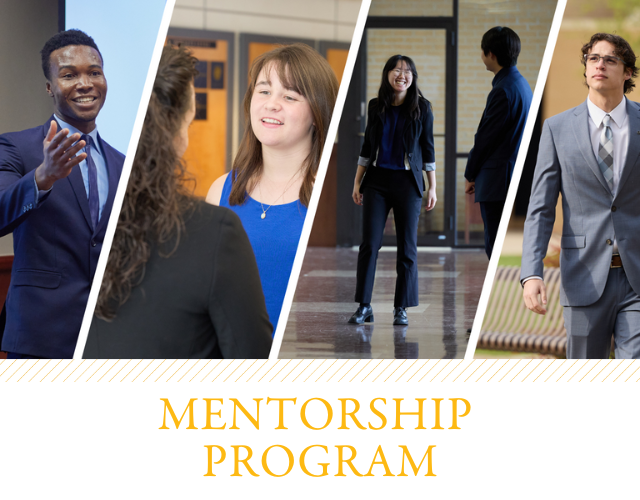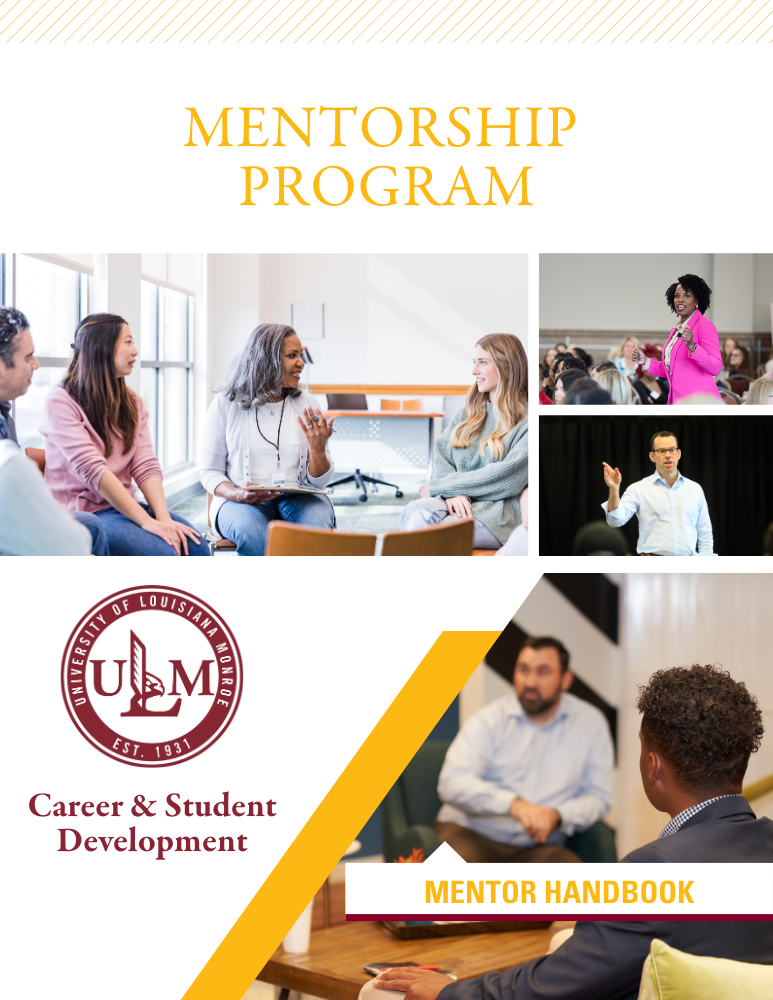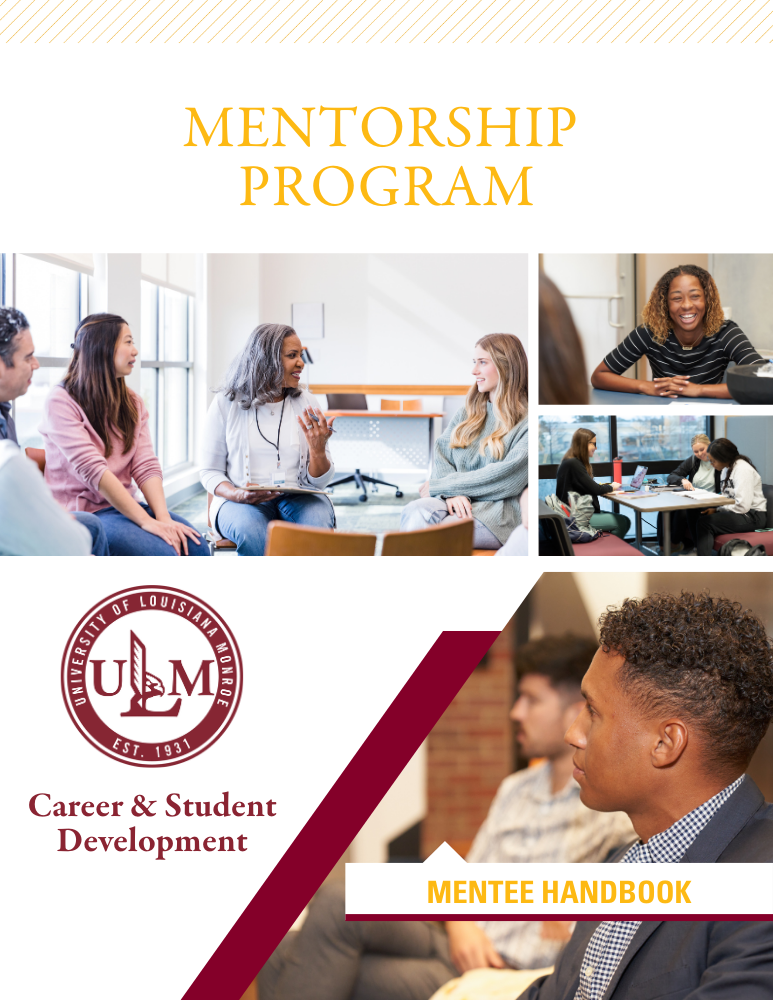Career Academies

Thank you for your interest in the ULM Mentorship Program! We plan to begin offering this program again in Spring 2027.
Whether you join as a Mentor or a Mentee your participation is vital to the growth, productivity, and sense of belonging we aim to foster at ULM.
Our Mentorship Program extends beyond career and academic advancement, forging meaningful connections with those on similar paths. We emphasize reciprocity, encouraging mutual learning and support to nurture personal and professional development. Participants both teach and learn, sharing knowledge, wisdom, and experiences to shape each other’s professional and personal growth.
Mentorship is an extraordinary opportunity to make a lasting impact on our community. Together, we can make this program a source of inspiration, growth, and lasting impact for ULM.
- TBD | Mentor and Mentee Application
- TBD | Mentee and Mentor matching
- TBD | Mentorship Program Orientation
- TBD | Mentorship Program Begins
- TBD | Mentorship Program Ends
MISSION
The University of Louisiana Monroe Mentorship Program connects students to professionals who seek to nurture their mentees personal and professional growth.


